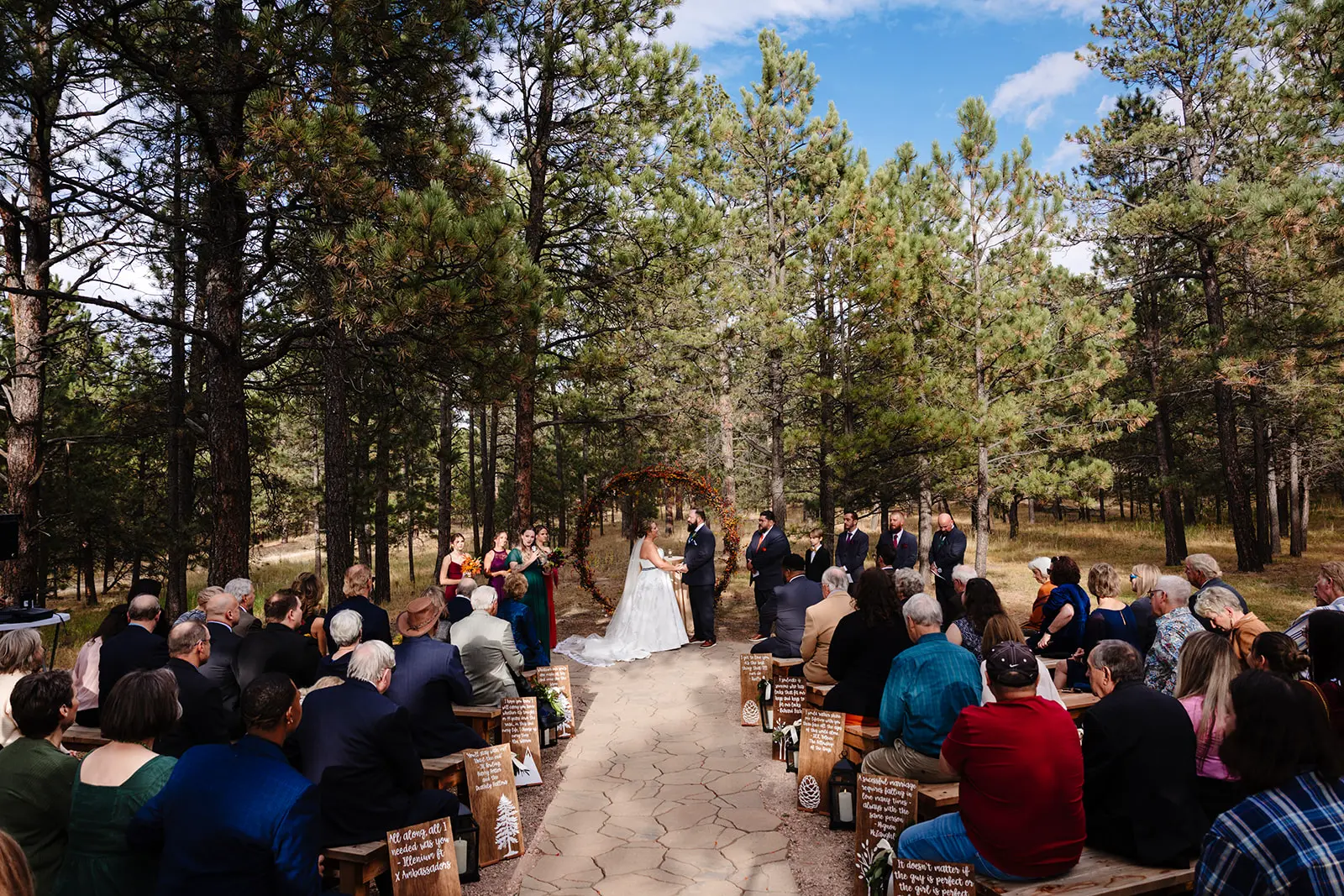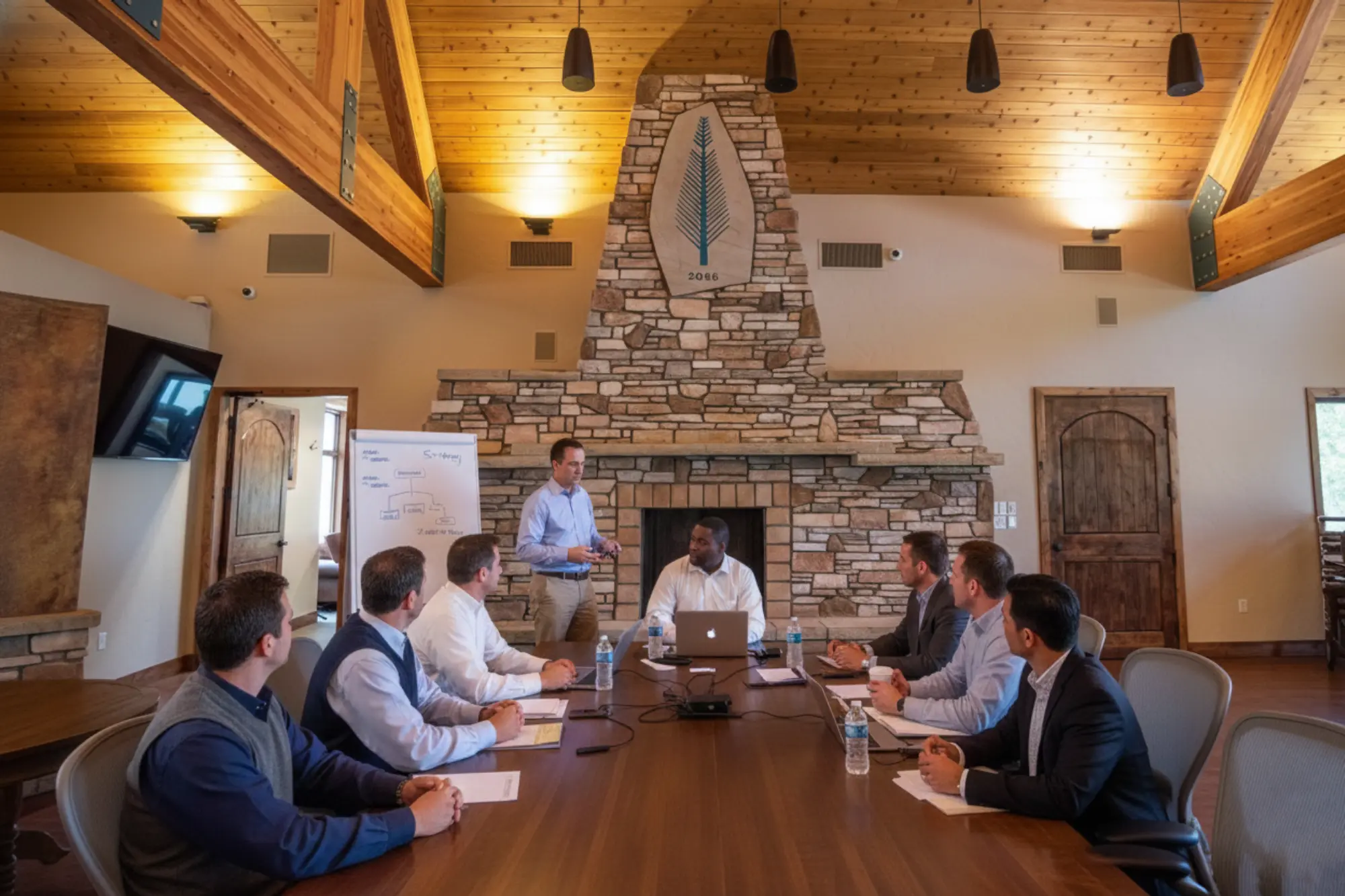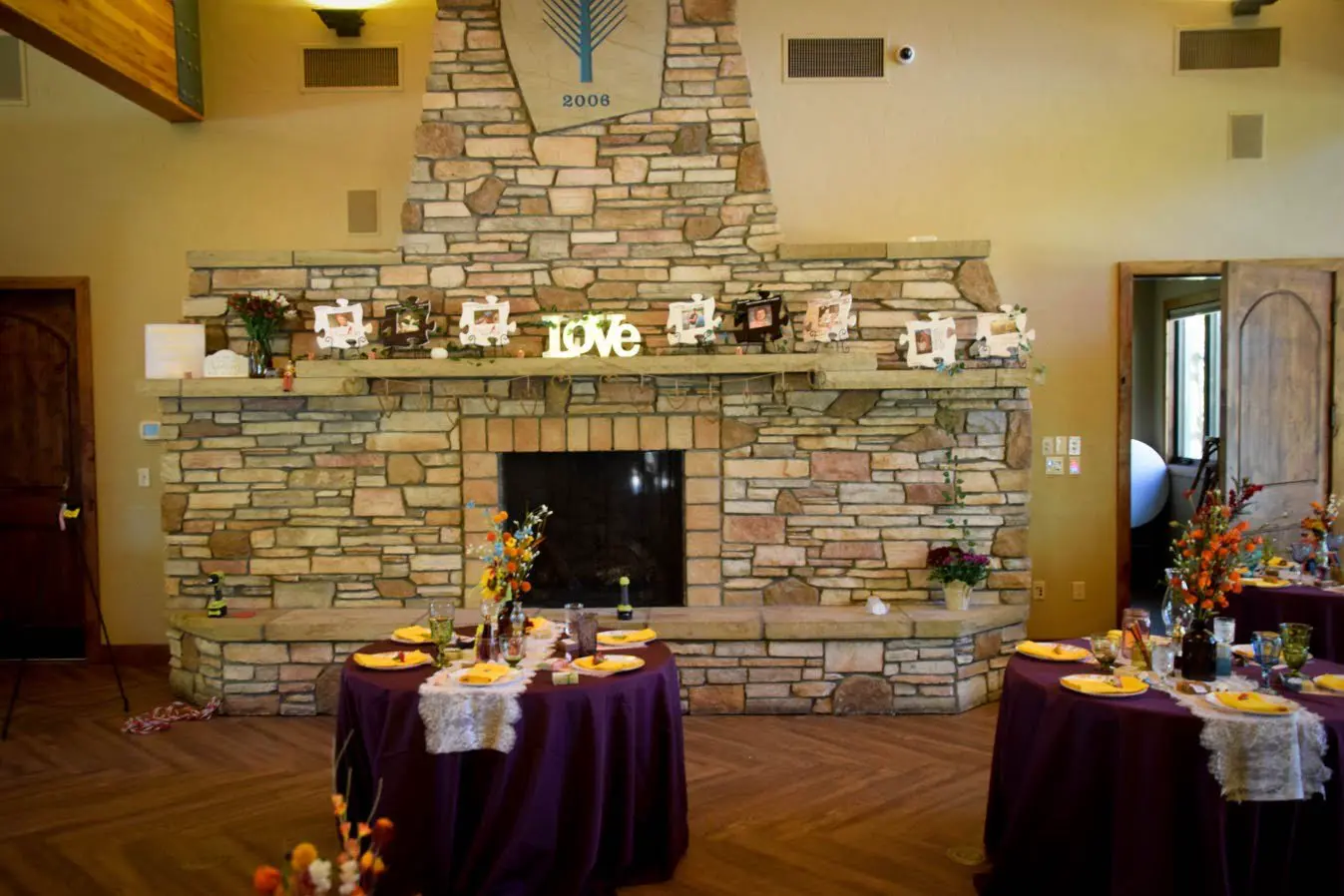Choosing between a celebration of life and a funeral can be difficult. This post will help you understand the key differences between a celebration of life vs funeral, including their focus, formality, and settings, to help you decide the best way to honor your loved one.
Key Takeaways
- Traditional funeral services offer a structured, formal approach to mourning, typically including visitation, funeral service, and committal service, providing comfort through predictability and ritual.
- Celebrations of life focus on personalizing the event to honor the deceased’s unique personality and achievements, often held in flexible venues and with an emphasis on uplifting and joyful remembrance.
- Key differences between funerals and celebrations of life lie in their formality, atmosphere, venue choices, and focus—funerals are formal and somber while celebrations of life are informal and celebratory, emphasizing positive memories.
Understanding Traditional Funeral Services
Traditional funeral services offer a structured and formal way to grieve. These services typically include three main activities: visitation, funeral service, and committal service. The predictability and formality of these components provide comfort and support to the grieving family by surrounding them with a familiar, respectful process. Exploring funeral service options can help families find the most suitable approach for their needs.
Each part of the traditional funeral service has a specific purpose and order. From the somber visitation to the heartfelt eulogies during the funeral ceremony, and finally, the solemn committal service at the cemetery, these rituals collectively honor the deceased and provide a framework for mourning death.
The Visitation
The visitation plays an integral role in the traditional funeral service. It offers an opportunity for friends, family, and acquaintances to come together to pay their respects to the deceased and offer support to the grieving family. During the visitation, guests view the casketed body and spend time with the family, providing a supportive environment for sharing condolences. This gathering helps to create a sense of community and shared sorrow, which can be profoundly comforting.
Visitation typically takes place at a funeral home or a location of significance for the bereaved family. The atmosphere is typically somber, with prayers led by religious figures, most commonly a pastor. This setting allows attendees to reflect on the deceased’s life and express their grief in a structured, respectful manner.
The Funeral Service
The funeral service forms the core of the traditional funeral order. Commonly held at a funeral home or church, this ceremony includes several key components designed to honor the deceased. Eulogies, hymns, and scripture readings are standard elements, providing a formal and respectful tribute. The funeral service commonly held, often delivered by a close friend or family member, serves as a poignant reminder of the deceased’s impact on their loved ones.
The structured nature of the funeral service provides a predictable mourning sequence, ensuring stability during a challenging time. This formal setting helps to guide attendees through the grieving process, providing a shared space to reflect on the loss and support one another.
The Committal Service
The committal service signifies the concluding farewell to the deceased. Typically held at the cemetery, this service involves:
- A respectful automobile procession from the funeral service location to the burial site
- Final prayers and commendations offered at the graveside
- The lowering of the casket into the ground
This solemn service provides a moment of closure for the grieving family. The act of watching the casket being lowered can be a powerful and emotional experience, symbolizing the finality of death and allowing loved ones to say their last goodbyes. The committal service ends the traditional funeral process, leaving the family with a sense of completeness in their mourning.
What Is a Celebration of Life?
A celebration of life reorients the focus from grieving over death to commemorating the deceased’s unique personality and accomplishments. Unlike traditional funeral services or memorial services, which are often somber and structured, celebrations of life aim to be more joyful and informal. They emphasize who the person was and what they meant to everyone, creating a more uplifting atmosphere.
After the individual’s physical remains have been cared for through burial or cremation, these celebrations are typically held. This is a common practice in many cultures. This timing allows for more flexibility in planning, enabling families to create a tribute that genuinely reflects the deceased’s life and passions, while honoring the individual’s physical remains.
Personalization in Celebrations of Life
Personalization characterizes celebrations of life. These events are tailored to reflect the deceased’s personality, values, and passions. From incorporating favorite songs and personal stories to involving meaningful activities, every element can be customized to honor the individual’s unique life.
Families might choose to create memory slideshows, set to music, or ask guests to wear the deceased’s favorite color. These personal touches help to create a very personal story that feels authentic and heartfelt. The goal is to evoke the spirit of the deceased through welcoming settings and creative expressions like photo montages and favorite flowers.
Venues for Celebrations of Life
A key distinction in a celebration of life lies in the wide array of potential venues. Unlike traditional funerals, which are often held in funeral homes or churches, celebrations of life can take place in a range of settings, including our Lodge. This flexibility allows the event to reflect the deceased’s personality and preferences more closely.
These settings not only honor the person’s life but also provide a comforting and familiar backdrop for friends and family to gather and share memories.
Timing and Flexibility
Flexible timing is another defining feature of celebrations of life. Unlike traditional funerals, which often need to be scheduled immediately after death, celebrations of life can be planned weeks or even months later. This additional time allows families to carefully consider how they want to honor their loved one and to create a more meaningful tribute.
This flexibility also extends to the scale and style of the event. Whether a private, intimate gathering or a grand, public celebration, families have the freedom to design the service that best suits their needs and the personality of the deceased. This more room for creativity and personalization can be incredibly healing during the grieving process.
Key Differences Between Funerals and Celebrations of Life
Several notable differences emerge when contrasting a traditional funeral service with a celebration of life. Here are some key differences:
- Traditional funerals are formal and somber, providing a structured way to grieve.
- Celebrations of life blend traditional practices with more informal elements.
- Celebrations of life focus on honoring the individual’s life rather than just mourning their death.
These differences manifest in various aspects, including the formality and atmosphere of the event, the venues and settings chosen, and the primary focus and purpose of the service. Understanding these distinctions can help families decide which type of service best aligns with their needs and the deceased’s wishes.
Formality and Atmosphere
The formality and atmosphere of funerals and celebrations of life differ significantly. Funerals are typically somber and formal, providing comfort through their structured nature. This formality helps attendees to focus on the gravity of the loss and to grieve in a shared, respectful setting.
In contrast, celebrations of life often have a relaxed atmosphere. These events aim to uplift and commemorate the deceased’s life through positive stories and memories. The relaxed nature of these celebrations makes them feel more like a joyous gathering, reflecting the deceased’s personality and the impact they had on their loved ones. This celebration of life vs traditional funerals offers a different approach to honoring a person’s memory.
Venue and Setting
The venues and settings for funerals and celebrations of life also differ. Traditional funerals are typically held in funeral homes or churches, providing a formal and respectful environment for the service. These venues are designed to accommodate large gatherings and to offer a dignified space for mourning.
On the other hand, celebrations of life can be held in a variety of locations. This flexibility allows the event to feel more personal and connected to the deceased’s life and interests.
Focus and Purpose
The focus and purpose of funerals and celebrations of life vary greatly. Funerals typically focus on:
- Acknowledging the loss
- Saying goodbye to the deceased
- Providing a structured approach to help attendees process their grief
- Finding closure through formal rituals and ceremonies
In contrast, celebrations of life emphasize:
- Cherishing the deceased’s memories and achievements
- Focusing on celebrating the individual’s life
- Recognizing the impact they had on others
- Remembering the positive memories they left behind
This shift in focus can create a more uplifting and comforting environment for those in attendance.
Benefits of Choosing a Celebration of Life
Opting for a celebration of life instead of a traditional funeral presents numerous advantages. These events aim to create a positive and uplifting atmosphere, focusing on the deceased’s life and the happy memories they left behind. This can be more supportive for grieving families and friends, helping them to heal through shared joy and remembrance.
Advantages of a celebration of life:
- Creates a positive and uplifting atmosphere
- Focuses on the deceased’s life and happy memories
- Helps grieving families and friends heal through shared joy and remembrance
Additionally, celebrations of life allow for greater creative expression and flexibility in planning. Families have the freedom to design a service that truly reflects the deceased’s personality and interests, creating a more meaningful and personalized tribute. This can include unique elements such as live music, special activities, or gatherings in significant locations.
Creative Expression
A leading benefit of a celebration of life lies in the chance for creative expression. These events can include unique tributes that reflect the deceased’s lifestyle and personality. Some examples of creative elements that can be incorporated into a celebration of life include:
- Live music
- Special refreshments
- Personalized decorations
- Slideshows or photo displays
- Memory tables or memory boards
- Guest books or memory cards
These elements can help make the event feel truly special and personalized.
Guests may also participate in creative activities, such as planting flowers or exchanging meaningful books. These activities not only honor the deceased but also provide a way for attendees to engage in the celebration actively. Funeral professionals can assist in planning these personalized events, ensuring that every detail reflects the unique life of the deceased.
Positive Environment
Celebrations of life can foster a positive and uplifting environment. By focusing on happy memories and positive stories, these events aim to lift everyone’s spirits. This approach can be particularly comforting for grieving families, as it encourages them to remember the joy their beloved family member brought into their lives.
Creating a day filled with joyful memories provides a unique opportunity for healing. Instead of a somber farewell, attendees can gather to celebrate the deceased’s life and the lasting impact they had on their loved ones. This focus on positivity can help families navigate their grief in a more supportive and uplifting manner.
Flexibility in Planning
Another major benefit of celebrations of life is the flexibility in planning. Unlike traditional funerals, which often have strict timelines and social expectations, celebrations of life offer more room for creativity and personalization. Families can take their time to plan an event that truly reflects the deceased’s personality and interests.
This flexibility also extends to budgeting and logistics. Without the pressure, families can make more optimal decisions about how to celebrate their loved one’s life. Some examples include:
- Choosing a unique location for the memorial service
- Incorporating special activities or hobbies that the loved one enjoyed
- Personalizing the decorations and theme of the event
This freedom allows for a more meaningful and heartfelt way to pay tribute.
How to Decide: Funeral vs Celebration of Life
Choosing between a traditional funeral and a celebration of life may prove difficult. Several factors should be considered, including family preferences, the deceased’s wishes, and professional advice from funeral professionals. Understanding these factors can help families make a decision that feels right for them and honors the deceased appropriately.
Reflecting on the deceased’s personality and life can provide valuable insights into which type of service might be more fitting. Additionally, evaluating the preferences and traditions of surviving family members can guide the decision-making process. Seeking advice from funeral professionals can also provide clarity on the options available and what each might entail.
Considering Family Preferences
Family preferences significantly affect the selection and execution of the type of service. Open communication with family members and caring friends can help to decide whether a structured service or an informal gathering feels more comforting and healing. Discussing the options with close family members can provide insight into what would make everyone feel respected and at ease.
Balancing different cultural and religious backgrounds within the family is also essential. In some cases, families may choose to have both a funeral and a celebration of life to cater to diverse needs and create a more nuanced farewell. This approach can help honor the deceased in a way that feels inclusive and respectful to all family members.
Reflecting on the Deceased’s Wishes
Considering the deceased’s wishes can greatly influence the planning process and ensure their preferences are honored. If the deceased had expressed specific preferences for their final arrangements, these wishes should be a primary consideration. Planning while the loved one is still alive allows for the inclusion of their wishes and passions in the service.
If specific instructions were left behind by the deceased, it is essential to follow these to honor their memory appropriately. This approach provides a sense of fulfillment, knowing that the service genuinely reflects what the deceased would have wanted, making the farewell more meaningful and heartfelt.
Seeking Professional Advice
Consulting with funeral homes or directors for professional advice can offer useful insights and direction in choosing between a funeral and a celebration of life. Funeral homes often have experienced staff who can help families decide between a funeral, memorial service, or celebration of life.
Funeral directors can offer detailed explanations of what both options entail, including the costs, logistics, and practical aspects of each. Consulting with professionals ensures that families are well-informed and can make decisions that honor the deceased while fitting their needs and preferences.
Summary
In conclusion, both traditional funerals and celebrations of life offer unique ways to honor a loved one. Traditional funerals provide a structured and formal approach, which can be comforting in its familiarity and predictability. They allow for a communal grieving process through set rituals and ceremonies. On the other hand, celebrations of life focus on the positive aspects of the deceased’s personality and achievements, providing a more uplifting and personalized tribute.
Ultimately, the choice between a funeral and a celebration of life depends on the deceased’s wishes, family preferences, and the desired atmosphere. By considering these factors and seeking professional advice, families can create a meaningful and heartfelt farewell that honors their loved one in the best possible way.
Frequently Asked Questions
What are the main components of a traditional funeral service?
The main components of a traditional funeral service are the visitation, funeral ceremony, and committal service. These components help honor the deceased and provide support to the grieving family.
How can a celebration of life be personalized?
Personalize a celebration of life by including elements that reflect the deceased’s personality, like favorite songs, personal stories, and meaningful activities. Consider using memory slideshows, tribute videos, and personalized decorations for a heartfelt tribute.
What are some common venues for celebrations of life?
Celebrations of life can be held in different settings such as homes, parks, private venues, or the deceased’s favorite places, allowing for a more personalized reflection of their personality and preferences.
How does the timing of a celebration of life differ from a traditional funeral?
The timing of a celebration of life differs from a traditional funeral in that it can be planned weeks or even months later, allowing for a more personalized and meaningful tribute to be created.
What are the benefits of choosing a celebration of life over a traditional funeral?
Choosing a celebration of life over a traditional funeral offers a positive and uplifting atmosphere, greater creative expression, and flexibility in planning, resulting in a more personalized and meaningful tribute. It’s a way to focus on celebrating the deceased’s life and achievements.



